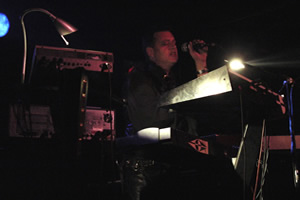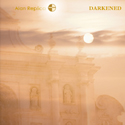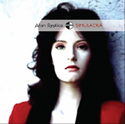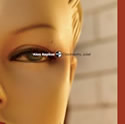
Q & A' S
This section will render the significant exchanges posted on the Alan Replica web site; whether questions, suggestions or comments regarding technical, musical or more personal aspects, Alan himself will answer whenever constructive. Older topics can be found at section ARCHIVES.
|
This general topic is to try to give elements of answer to the various requests about Alan Replica touring info I have received quite a consistent amount of reservations, requests and questions about my touring and other localized gigs plans... And to be true I have none of these plans for now, and to answer part of the questions, regarding my ability or willingness to play live, it is not that I can't perform or wouldn't like to, but simply put it's more related to my status as an 'independent craftsman'. It tends to limit my possibilities. My actual position on the matter is I feel and always felt that live events are the most exciting and rewarding times for me, no matter the ups and downs of gigging: it's a moment of truth where the songs get the chance to come to 'life', and this is nothing to be compared to a recording, where, unarguably, the relief and the energy of the instant cannot be fully produced. It is even more rewarding for someone in my position, as to be realist, I haven't developed such a fan base that would enable me to fill a whole venue and secure an audience to my cause; thus it is always a challenging and exciting moment to appear and try and win the audience over.. My policy about the touring aspect of my musician life is today marked with realism, being an independent semi-pro artist, simply leaves me to my own devices when it comes to organizing and financing this activity. And for instance, today I do not have a proper band to perform on stage with, and I have made the temporary choice to perform if ever with my machinery.. However much I would like it to be some other way, and be able to rely on some external support organization to arrange some shows, this is the current scheme of things I have to put up with myself. So, as it goes, it leaves me in priority with my daytime job to fulfil dutifully, time to take care of my family, and some little extra time to make the music and invest into the promo aspects. For instance when I was asked to tour a couple dates in the USA, I just couldn't do it: me living in France, the organizations and dates being local, more, spread among different states and periods.. Who could? I am also very careful with the overall organization, and want to make sure a gig will allow me to perform in reasonably good conditions: time for me to prepare the event, number of acts if at a festival, stage and time slot, fee vs. investment, etc. And when on the spot, if I feel something is wrong I can still decide not to play. That's the good point about not being pro, being financially independent, I am very free to decide (among the scraps I'm left with) of my artistic life directions. For the same (time, money, conditions) reasons, I can only arrange to attend punctual events when they appear likely to fit in. For instance, I have played The Goudvishal in Arnhem some time ago, and though this is not a major stream festival, I have trusted the organization, and I think I can say the performance in return was a worthwhile moment, because we all prepared professionally (Contacts - Venue : www.goudvishal.nl ; Organizer : darkentries@europe.com - Frank-Jan van Zutven ; www.gothtronic.com). Honestly, I would really be ever so pleased to perform the songs on stage more, and I promise, I shall try and devote more time to consider and meet the demands, and also to make the contacts and develop this touring question in the near future - Alan Replica - Label Contacts : www.NinthwaveRecords.com - info@ninthwaverecords.com (David Richards)
|
| This general topic is to try and cover the various questions about how particular sounds were made and what specific instruments they come from Well, first these questions have made me remember the times where I was struggling to know what instruments were appropriate to the sound I wanted, the moments I spent speculating about the instruments listed on some songs I loved the sound, and the hours I spent roaming the dealers and trying some instruments, and then the long search for second hand opportunities, as most of the synths would cost you an arm in those days. This is why I found this question of importance as it might have saved me a great deal of time and delusion at the time, so this is why I will try and explain how I got these sounds working, even though it may relate to 'industrial secret' when it comes to the blending of sounds in a work. On the 'Clockworks, Juliet' album, the central control of my set up (apart from myself), is a dedicated hardware sequencer, the Roland MC500 MKII, that allows me to record the parts of the different instruments I play, and reproduce what I played on my set up live, via its 2 Midi outputs. Sequencers do not record any audio, but the electric voltage associated to each key, and will reproduce what you played mainly like a player piano. The thinner the note division a sequencer offers, the closest to what you played it will reproduce without quantification (auto standardization of the parts tempo). About the sounds, the droning/sequences sounds are essentially made on a monophonic analog synthesizer, the Sequential Circuits Pro~One, that has special built-in features to do so (analog step sequencer and arpeggiator), this sound is featured on the right of the stereo image on the album, and is sometimes tweaked to resonate (with filter cut off & resonance knobs). Technically, the Pro~One sequencer is synchronized via its Trigger In input from an external trigger instrument output, for which I mainly record hits in my master sequencer (I use a rim shot sound to do so). The sequences are doubled on the left side of the stereo image with an equivalent mono sound, played on a polyphonic analog synthesizer, the Roland Jupiter 6. The JP6 is also responsible for most of the arpeggios present, and 'bright' synthesizer sounds, like electro and echoing stuff. Most of the blurry layers, voice like, textures and sound effects (bells, wind, note gliding-portamento), and deep low key sounds (roaming bass layers) come from a polyphonic analog (digital hybrid) synthesizer, the Sequential Circuits Prophet 5. The Prophet 5 is also responsible for the majority of the lead melody sounds, but some leads may be doubled by another instrument. Another central control piece is a polyphonic digital synthesizer (sample reader would be a better definition), an E-mu Proteus Master Performance System keyboard, my main keyboard, which I use to access all other instruments via Midi (apart from the Pro~One which is not midified). The MPS I use for all 'real' 'rich' (effect treated) instrument sounds, based on real instrument samples then treated with digital delays and stuff inside the MPS. I use it for Drums, Guitars, Bass, Piano, Strings, Choirs, Brass.. I use some Drums reverse sounds to kick some punchy effects in, like 'snare attacks' and 'wind breaks between parts. I also use an analog type sound in the MPS to double the sequences again, this time in the center spot. And I also use MPS String sounds to double the Prophet 5 leads now and then. My studio set up includes a couple of samplers, the polyphonic digital/analog E-mu Emulator III keyboard, that recounts on various personal samples, some synth Drums (used on 'Isolation' for instance) and percussions (distorted handclaps on 'Factys II'), the majority of the real 'raw' (no effect treatment) ancient orchestra instruments (ex.: Cello, Violins), pulsating low sounds (ex.: 'Isolation' intro pulsating sound), waving layers effects, raw digital metallic sounds, and some devastating low key synth sounds and lush intro sounds. The EIII's special in the way it combines a digital sampling section,an with an analog filter synthesis section quite the same as the one used for the Prophet 5. The EIII was sparsely used in the 'Clockworks, Juliet' album, more on the 'Simulacra' album (intro sounds on 'Radio Plays', strings intro on title 'Simulacra', all intro sounds on 'My Wheels'..). The second sampler is a polyphonic digital E-mu E6400 Ultra unit, I first use to transfer my EIII sounds for gig purposes (the EIII is too fragile to carry around). The E6 was not used on the 'Clockworks, Juliet' album. The E6 accounts for some other 'real' ancient orchestra instruments, but also the 'technoid' sounds capes, the lush layer sounds and the metallic percussions, mainly. Though I consider this analysis can be interesting to give you an outline of what capacities you can expect from these synthesizers, these capacities are not the only, and it's not all in the instrument, it's just the way I use them and go for a range of sounds I like to hear. More, there are 6 major ingredients that make the sounds you can hear in the 'Clockworks, Juliet' songs, particular, with some personal 'industrial secret' : the instruments I have gathered I have personally chosen for what I knew they could rend; I have in a vast majority of the cases designed my own sounds, and not used the offered built-in sounds (presets, samples); I tweaked these instruments to obtain the sounds I wanted from them; I made these instruments communicate together in a special way to fit my purpose; I also tend to abusively blend many sounds to get the textures and atmosphere I'm looking for; and.. There is also a part of random in experimentation and mysterious accidents happen that bring something unexpected to contribute.. What I'm saying here is, generally speaking, I have the whole idea of a song and atmosphere before I get to the synths, where I start working to recreate this idea - Alan Replica -
|
|
How can you say 'Clockworks, juliet' was recorded 'live', one take, when there are so many instrument parts that cannot possibly be played by one human being at once ? Well, you're right I did not record the album singing and playing all instrument parts together. But when I say recorded 'live' and in one take, this means all parts where triggered live simultaneously. For that purpose I use a dedicated hardware sequencer to record the parts and replace mechanically the instrumentalists. This sequencer allows me to replay the parts I have recorded into it one by one, all at once. A sequencer does not record the audio when you record a part, it mainly records the electric voltage behind the keys, and will replay them like a piano recorder or barrel organ. Then when I record a song, I record everything at once, directly from my mixing console to my digital recorder, on a stereo track. I don't record each instrument one by one, do retakes, do overdubs and remixes. I record everything in one take, in stereo, voice included, that's all. This process I use for many reasons I'm fond of : playing all instruments together maintains the harmonic interference between the sounds; recording direct from the mix keeps the raw edge and dynamic brilliance; bouncing directly to a stereo track prevents from any post tweaking, including the voice, so this I feel is more honest, and saves me time and overall quality. Recording directly from a mix, tends to put the accent on the direct mix, so time is spent to get the balance right at the source of what is played, and not to tweak the recorded material. This I reckon saves time, spending the time on the 'live' mix is a choice for a permanent option : what you hear on the album is exactly what I have played and recorded in one take, and what you hear on the recorded album I can reproduce live exactly in one shot. In this sense each song on the 'Clockworks, Juliet' album was recorded live and in one take - Alan Replica -
|
|
Where do you get your inspiration from and how do the songs come to you ? Great question.. Apart from invoking higher intentions, I must say songs seem to come at random, there is no particular situation, though I have spotted that some particular situations are more inclined to inspiration. Like being in movement, driving or in a car or train, it seems your mind gets to work faster, I guess due to the vigilance you develop in fast movement. Sometimes I get a whole song idea and main lyrics in one trip somewhere, riding my motorbike is a winner.. But it's not the only situation, sometimes when your mind is dozing away, like watching telly or lying in your bed, it starts roaming away, and you can get the 'inspiration'. Some other times it relates to strong or unacquainted for emotions, would it be in real life, reading a book or watching some movie or else.. It comes, from time to time, sometimes you're pilled up with ideas, sometimes they avoid you when you're at work on a stunning debut song; a constant : you're always late on realizing these ideas, I can tell you. I don't relate this experience to some work, it's like you're an antenna of some sort, though I know that if you start working on your passion, you're more incline to develop the inspiration, you probably need to bathe in the matter, and do something with the ideas when they come. Now if you speak about inspiration in style of music and sound, I can say I was first impressed by the instruments that came to cross my path as a growing child, like bagpipes, great organs, organs and finally synthesizers.. I then developed a passion for the albums and artists that seemed to contain fragments of what I expected to do, like for instance Kraftwerk, Giorgio Moroder & Sparks for the droning sequences and pulsating rhythmic, later Depeche Mode, New Order, Section 25 and David Harrow & Anne Clark for the same part; Elvis Costello, the Talking Heads, Joy Division, the Stranglers for the melancholic harmonic textures, Human League (first albums) and Shox Lumania for the raw edge of powerful mono sounds, Brian Eno & Bowie (Low, Heroes..), Peter Gabriel and Blancmange, Echo & The Bunnymen for the daring and magnificent harmony, John Foxx, Ultravox, Peter Gabriel, Gary Numan and Anne Clark for the minimalism, the lush textures, the rock guitars sounds, the high pitched or declamatory voice and the deeply emotional lyrics.. So many I forget here, see hidden section LIGHT for a listing). Now I get more thrilled on sound and emotion as a whole, with people like Ian Mc Culloch (Electrafixion) Suede, Muse, Apocalyptica, Sparks, Gary Numan, Placebo, Wim Mertens, Tori Amos, Alanis Morrisett, .. As far as I can remember it has always been a question of the evocative power of sound to me, I most appreciate people like the Rolling Stones.. Lou Reed.. Kiss.. Sparks, Human League, Depeche Mode, Ultravox, Gary Numan, Sigue Sigue Sputnik, Lords of The New Church, Simple Minds, Electrafixion and Prodigy,.. For that main reason. But, generally speaking, if at one time I was more thrilled by one song on an album which I could relate my aspirations to, and even if I still have a crush for one song now and then, it's more a question of consistency and novelty of a whole album, and I tend to stay more interested in people that are individual singer-songwriters of the works, I can relate to them, and I like to enter other individuals worlds too - Alan Replica -
|


